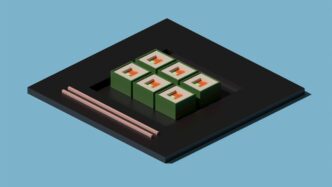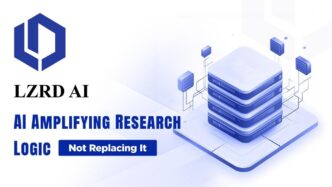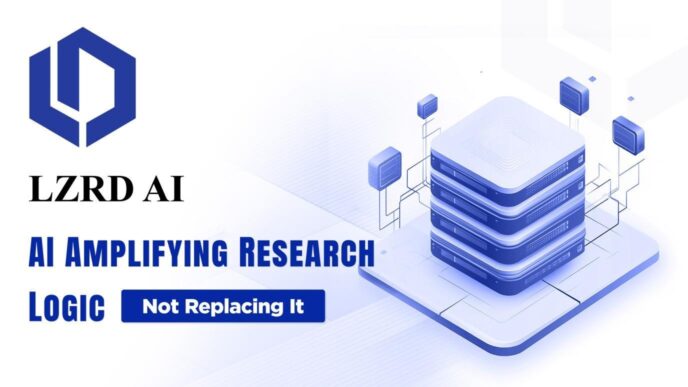The world of computing is changing, and fast. Classical computers, the ones we use every day, are hitting their limits with really complex problems. That’s where quantum computers come in. Think of them as a whole new way to process information, using the weird rules of quantum mechanics. By 2025, these machines are set to become even more powerful, opening doors to solving puzzles that are currently impossible. We’re talking about big changes in science, AI, and even how we keep our data safe. It’s a big shift, and it’s happening now.
Key Takeaways
- Quantum computers use qubits, which can be both 0 and 1 at the same time, unlike regular computer bits. This lets them handle way more information.
- By 2025, expect big steps forward in the physical parts (hardware) and the instructions (software) that make quantum computers work.
- These machines could totally change fields like medicine discovery, creating new materials, and making AI smarter and faster.
- There are still big challenges, like keeping quantum states stable and making the machines bigger and cheaper to use.
- The future likely involves connecting multiple quantum computers together, creating a kind of ‘quantum internet’.
The Quantum Leap: Understanding Quantum Computers 2025
So, what’s all the fuss about quantum computers in 2025? It’s not just a buzzword; it’s a whole new way of thinking about computation. Classical computers, the ones we use every day, are pretty amazing, but they’re hitting a wall when it comes to certain super complex problems. Think about trying to simulate a new drug molecule or figuring out the most efficient way to route a global shipping network – these tasks can take even the most powerful supercomputers ages. That’s where quantum computing steps in. It’s like going from a bicycle to a rocket ship for specific types of calculations.
The Quantum Revolution Redefining Computation
This isn’t just about making computers faster; it’s about making them capable of solving problems that were previously impossible. We’re seeing quantum mechanics, the weird and wonderful rules that govern the tiniest particles, being harnessed for computing. This shift means we can tackle challenges in areas like materials science, medicine, and even artificial intelligence in ways we couldn’t even dream of a decade ago. It’s a genuine paradigm shift, moving beyond incremental improvements to something entirely new. Companies and researchers are really starting to see the practical side of this, moving past the initial hype to actual applications that could change industries. You can see some of the discussions happening around these real-world challenges at events like LA Tech Week.
Understanding Quantum Mechanics in Computing
The core difference comes down to how information is stored and processed. Our current computers use bits, which are like light switches – they’re either ON (1) or OFF (0). Simple, right? Quantum computers use ‘qubits’. Now, qubits are way more interesting. Thanks to a quantum phenomenon called superposition, a qubit can be a 0, a 1, or, get this, both at the same time. Imagine a spinning coin before it lands – it’s neither heads nor tails until it stops. This ability to be in multiple states simultaneously is what gives quantum computers their incredible power for certain tasks. It allows them to explore a vast number of possibilities all at once, rather than checking them one by one.
The Fundamental Difference: Qubits vs. Bits
Let’s break down the qubit versus bit idea a bit more. It’s not just a technicality; it’s the engine of the quantum revolution.
- Bits: These are the building blocks of classical computing. Each bit holds a single value: either 0 or 1. All calculations are performed by manipulating these definite states.
- Qubits: These are the quantum equivalent. A qubit can represent 0, 1, or a combination of both through superposition. This means a system with just a few qubits can represent exponentially more information than the same number of bits.
- Entanglement: Another mind-bending quantum concept is entanglement. When qubits are entangled, they become linked in such a way that they share the same fate, no matter how far apart they are. Measuring the state of one instantly tells you the state of the other. This interconnectedness is key to performing complex quantum operations.
Here’s a quick look at how this difference plays out:
| Feature | Classical Bit | Quantum Qubit |
|---|---|---|
| State | 0 or 1 | 0, 1, or both |
| Representation | Single value | Superposition |
| Correlation | Independent | Can be Entangled |
This ability to hold and process multiple states simultaneously is what allows quantum computers to tackle problems that are simply out of reach for even the most powerful classical machines. It’s a completely different approach to computation, and one that’s set to redefine what’s possible.
Advancements Shaping Quantum Computers 2025
Okay, so 2025 is shaping up to be a pretty interesting year for quantum computers. It feels like we’re finally moving past just the theory and seeing some real, tangible progress. It’s not just one thing, either; it’s a mix of hardware getting better, new ways to actually use these machines, and the software to make it all work.
Breakthroughs in Quantum Hardware
Hardware is where a lot of the action is. Companies are really pushing the limits on building more stable and powerful quantum processors. We’re seeing improvements in things like error correction, which is a big deal because quantum states are super fragile. Think of it like trying to balance a pencil on its tip – any tiny disturbance can knock it over. So, better error correction means these quantum computers can run for longer and perform more complex calculations without falling apart.
- Google’s Willow chip, launched late last year, is a good example, focusing on better error correction and overall performance. This is a step towards building bigger, more reliable quantum systems.
- IBM has also been working on making their qubits more stable and reducing the errors that pop up during calculations. They’re aiming for more efficient processing.
- Other players are also making strides, with processors like China’s Zuchongzhi continuing to set new benchmarks for raw processing power.
These hardware improvements are key because they lay the groundwork for everything else. Without better hardware, the fancy algorithms and software wouldn’t have much to run on.
Innovations in Quantum Algorithms
It’s not just about building faster machines; it’s also about figuring out what to do with them. That’s where quantum algorithms come in. These are like the special instructions that tell a quantum computer how to solve a problem in a way that classical computers just can’t.
- Hybrid Quantum-Classical Algorithms are becoming more popular. These combine the strengths of both quantum and classical computers, making them practical for tasks like optimization and machine learning right now.
- The Quantum Approximate Optimization Algorithm (QAOA) is showing promise for tackling really tough problems in areas like logistics and financial modeling.
- And then there’s the whole area of Post-Quantum Cryptography (PQC). While quantum computers could break current encryption, researchers are developing new encryption methods that are resistant to quantum attacks. This is a race against time, and it’s a big focus for cybersecurity.
These algorithmic advancements are what will actually let us solve those previously impossible problems. It’s like having a super-powerful engine but also needing the right kind of fuel and a map to get somewhere new.
The Role of Quantum Software
Finally, we need the software to tie it all together. This includes the programming languages, development tools, and operating systems that allow people to actually interact with quantum computers. It’s a bit like the operating system on your phone – it makes the powerful hardware usable.
- Development Environments: Tools are emerging that make it easier for developers, even those without a deep physics background, to write and test quantum programs. This is crucial for wider adoption.
- Cloud Access: Many quantum computers are now accessible via the cloud, meaning you don’t need to own a super-expensive quantum machine to experiment with them. This democratizes access and speeds up innovation.
- Simulation Tools: Before running code on actual quantum hardware, developers often use simulators. These software tools mimic quantum computers on classical machines, allowing for testing and debugging, which is a big help in developing quantum applications.
Basically, the software side is about making quantum computing accessible and practical for more people and more problems. It’s the bridge between the raw power of quantum hardware and the real-world applications we’re all excited about.
Transformative Applications of Quantum Computing
Okay, so quantum computers aren’t just some far-off sci-fi dream anymore. By 2025, we’re really starting to see them do some pretty amazing things that our current computers just can’t handle. It’s like going from a bicycle to a rocket ship for certain kinds of problems.
Transforming Science and Engineering Disciplines
This is where things get really interesting. Think about designing new materials or understanding how complex molecules work. Classical computers struggle with these kinds of simulations because the number of possibilities explodes. Quantum computers, however, are built to handle this complexity. They can model chemical reactions with incredible accuracy, which could lead to:
- New drug discoveries: Imagine creating medicines tailored to specific diseases or even individuals much faster than before. This could drastically cut down the time and cost of developing life-saving treatments.
- Advanced materials: We could design materials with properties we can only dream of now – think super-efficient solar cells, better batteries for electric cars, or even materials that help clean up pollution.
- Better catalysts: For industrial processes, finding the right catalyst can make a huge difference in efficiency and environmental impact. Quantum simulations can help pinpoint the best ones.
It’s not just about discovery, either. Quantum computing can also help analyze massive datasets that are just too big for us to sort through now. This means we can find patterns and insights we’ve been missing, which is a big deal for fields like climate modeling and advanced physics research. The potential for scientific breakthroughs is enormous.
AI/ML Acceleration with Quantum Power
Artificial intelligence and machine learning are already changing our world, but quantum computing is poised to give them a massive boost. Training complex AI models, especially deep neural networks, takes a ton of computing power and time. Quantum computers can speed this up significantly. This means:
- Faster AI training: Models that currently take weeks or months to train could be ready in days or even hours.
- More sophisticated AI: We could develop AI that can learn and adapt in real-time, making smarter decisions in areas like autonomous driving or financial trading.
- New AI algorithms: Quantum mechanics itself might inspire entirely new ways of building AI that are more efficient and capable.
This combination of quantum and AI could lead to solutions for problems we haven’t even thought of yet. It’s a bit like giving AI a super-brain.
Cryptography and Cybersecurity Implications
This is a double-edged sword. On one hand, quantum computers pose a significant threat to our current encryption methods. Many of the security protocols we rely on today, like those used for online banking and secure communications, could be broken by a powerful enough quantum computer. This is because certain quantum algorithms, like Shor’s algorithm, are incredibly good at factoring large numbers, which is the basis of much of our current cryptography.
However, this also means quantum computing is driving the development of new, quantum-resistant cryptography. Researchers are working on new encryption methods that even quantum computers can’t break. So, while it’s a challenge, it’s also pushing us to create a more secure digital future. It’s a race to stay ahead of the curve, and the development of quantum cryptography is a major focus.
Navigating the Challenges of Quantum Computing
So, quantum computers sound amazing, right? They promise to solve problems that would make even the biggest supercomputers sweat. But getting there isn’t exactly a walk in the park. There are some pretty big hurdles we’re still trying to clear.
Overcoming Quantum Decoherence
Think of a qubit like a spinning coin. While it’s spinning, it’s in a state of both heads and tails at once – that’s superposition. But the moment it lands, or if it gets bumped, it picks a side. In quantum computers, this ‘bumping’ is called decoherence. It’s when the delicate quantum state of a qubit gets messed up by its surroundings – like heat, vibrations, or even stray electromagnetic fields. This loss of quantum information is a major headache. Keeping qubits stable long enough to do useful work is one of the biggest fights researchers are having. It’s like trying to balance a pencil on its tip; the slightest disturbance sends it toppling.
The Scalability Hurdle
Right now, most quantum computers have a relatively small number of qubits. We’re talking dozens, maybe a few hundred. But for many of the really exciting applications, like breaking modern encryption or simulating complex molecules, we’ll likely need thousands, or even millions, of qubits. Getting more qubits to work together reliably is a massive engineering challenge. It’s not just about cramming more hardware in; it’s about controlling them all precisely without them interfering with each other. Imagine trying to conduct a symphony orchestra where every musician is also trying to conduct their own section – chaos!
Cost and Accessibility Concerns
Let’s be real, quantum computers are not cheap. They are incredibly complex machines that require specialized environments and highly trained people to operate. Right now, they’re mostly found in big research labs and major tech companies. This makes them pretty inaccessible for smaller businesses or individual researchers. While the hope is that costs will come down as the technology matures, we’re still a ways off from having quantum computers on every desk. It’s a bit like the early days of personal computers – super expensive and only for enthusiasts or big institutions.
The Future of Quantum Computing: Interconnected Systems
So, we’ve talked about what quantum computers are and how they’re getting better. But what happens when you start linking them all up? That’s where things get really interesting, and honestly, a bit mind-bending.
Networking Quantum Computers
Think about it like this: right now, a single quantum computer is like a super-smart, but isolated, brain. To tackle the truly massive problems out there, we need these brains to talk to each other. This isn’t about making information travel faster than light – there are rules against that, called the quantum no-communication theorem. Instead, it’s about building bigger, more powerful quantum systems by connecting smaller ones. IBM and Cisco are already working on prototypes to link quantum processors, aiming for a working network within five years. This connection is the critical piece for scaling beyond what any single machine can do. It’s about creating quantum datacenters, essentially, where many quantum computers can pool their power.
The Quantum Computing Internet Vision
This idea of connecting quantum computers goes beyond just making bigger datacenters. The ultimate goal is a "quantum internet." Imagine a network where quantum information can be sent across vast distances, enabling entirely new forms of secure communication and distributed quantum computing. This would allow multiple quantum computers to collaborate on problems that are currently impossible for even the most advanced single machines. Technologies like quantum repeaters and quantum memories are being developed to make this long-distance communication a reality, potentially spanning continents.
Partnerships Driving Quantum Progress
Building this interconnected quantum future isn’t something any one company or research group can do alone. It’s a massive undertaking that requires collaboration across the board. We’re seeing partnerships form between hardware makers, software developers, and research institutions. These collaborations are key to sharing knowledge and resources, pushing the boundaries of what’s possible. It’s a bit like building a new city – you need architects, engineers, builders, and planners all working together. This collective effort is what will truly accelerate the development and deployment of networked quantum systems.
Preparing for the Quantum Era
So, quantum computers are coming, and they’re going to change a lot of things. It’s not just about faster calculations; it’s a whole new way of thinking about problems. If you’re running a business or working in a technical field, you can’t just ignore this. It’s like when the internet first showed up – some people jumped on it right away, and others waited too long. We don’t want to be the ones waiting too long.
Building Quantum Skills and Expertise
This is probably the most important part. You can’t just expect people to know how to use quantum computers. We need to start training folks now. Think about it like learning a new language, but for computers. It involves understanding some pretty weird physics, like superposition and entanglement, and then figuring out how to write programs that actually work on these machines. It’s not going to be easy, but it’s necessary.
- Technical Training: Focus on quantum programming languages and how to interact with quantum hardware. This is where the rubber meets the road.
- Conceptual Understanding: People need to grasp the basic ideas behind quantum mechanics and why it’s different from what we have now. No need to be a physicist, but a general idea helps.
- Problem Identification: Learning to spot which kinds of problems are actually good candidates for quantum solutions. Not everything is better on a quantum computer.
Developing a Quantum Strategy
Just having skilled people isn’t enough. You need a plan. What are you hoping to achieve with quantum computing? Are you looking to speed up research, break current encryption (or defend against it), or maybe create entirely new materials? Having a clear goal will help you figure out where to put your resources. It’s about making smart choices now so you’re not scrambling later.
| Area of Focus | Initial Steps |
|---|---|
| Research & Development | Identify potential quantum use cases for your industry. |
| Talent Acquisition | Start looking for individuals with quantum aptitude. |
| Partnerships | Explore collaborations with quantum computing providers. |
Staying Informed on Industry Trends
This field is moving at lightning speed. What’s cutting-edge today might be old news next year. Keeping up with the latest breakthroughs, new hardware releases, and evolving algorithms is non-negotiable. You need to know what’s possible and what’s coming down the pipeline. This means reading industry news, attending webinars (even if they sound a bit out there), and talking to people who are actually working in quantum. It’s a bit like trying to follow a race car – you have to keep your eyes peeled.
Looking Ahead: The Quantum Horizon
So, where does all this leave us as we look towards 2025 and beyond? Quantum computing is definitely not science fiction anymore, but it’s also not quite ready for your average home office. We’re seeing real progress, with companies building better hardware and figuring out how to actually use these machines for tough problems. It’s going to take time, and there are still big hurdles to clear, like making these systems more stable and easier to work with. But the potential is huge – think new medicines, better materials, and maybe even a whole new way to secure our digital lives. The key for businesses and researchers right now is to start learning and exploring what quantum can do. It’s a bit like the early days of the internet; you might not know exactly how you’ll use it yet, but getting involved early could make all the difference down the road. The quantum journey is just getting started, and it’s going to be an interesting ride.
Frequently Asked Questions
What exactly is a quantum computer and how is it different from the computer I use now?
Think of your current computer using ‘bits’ that are like light switches – they can be either ON (1) or OFF (0). Quantum computers use ‘qubits’ which are like dimmer switches that can be ON, OFF, or somewhere in between, all at the same time! This ‘superpower’ lets them explore many possibilities at once, making them super fast for certain types of really hard problems that regular computers struggle with.
Will quantum computers replace my laptop or phone soon?
Not anytime soon! Quantum computers are huge, expensive, and need super cold temperatures to work. They’re more like specialized tools for scientists and big companies tackling massive challenges, not for everyday tasks like browsing the internet or playing games. Your regular computer will still be around for a long time.
What kind of problems can quantum computers solve that regular computers can’t?
They’re amazing at figuring out really complex puzzles. Imagine trying to find the best way to deliver packages to thousands of places – a quantum computer could find the fastest route much quicker. They can also help discover new medicines by simulating how molecules behave, or create new materials with amazing properties.
Is it true that quantum computers can break all our current online security?
That’s a concern, yes. The way quantum computers work means they could potentially break the codes that keep our online information safe today. Scientists are already working on new types of ‘quantum-proof’ security to protect us in the future, so it’s a race between breaking and protecting.
When will we see the real benefits of quantum computing?
We’re already starting to see some early wins, especially in research labs. By 2025, we expect to see more practical uses in areas like discovering new drugs and materials. It will take more time, maybe years, for these benefits to reach everyday life, but the progress is happening faster than many expected.
Do I need to learn about quantum physics to understand quantum computing?
You don’t need to be a physics whiz! While it’s based on tricky quantum ideas, you can understand the basics of what quantum computers do and why they’re important without getting lost in the deep science. Think of it like knowing how to use a smartphone without understanding all the electronics inside.












